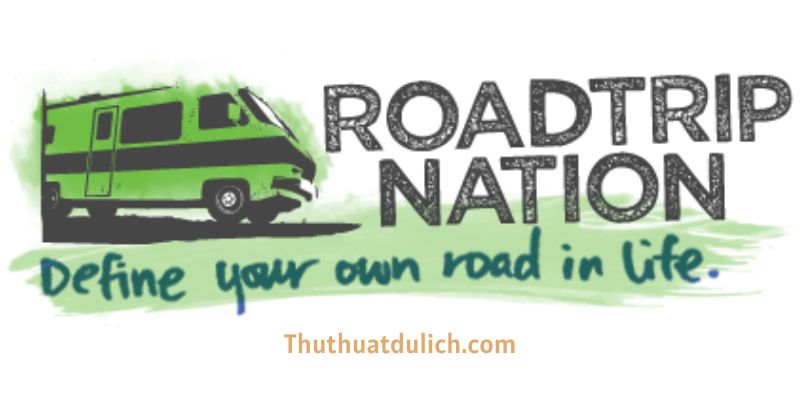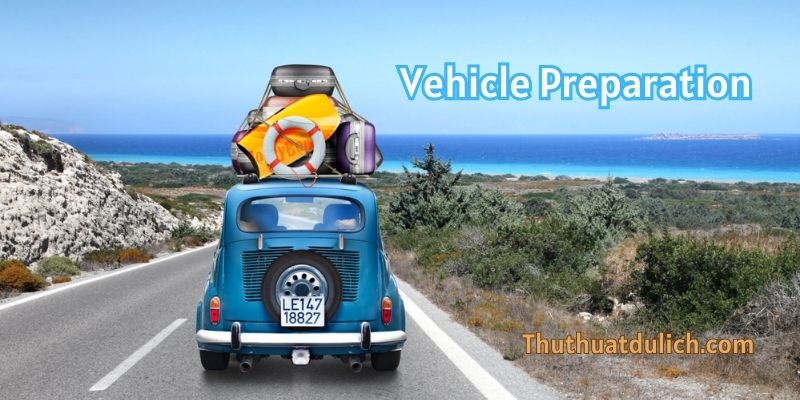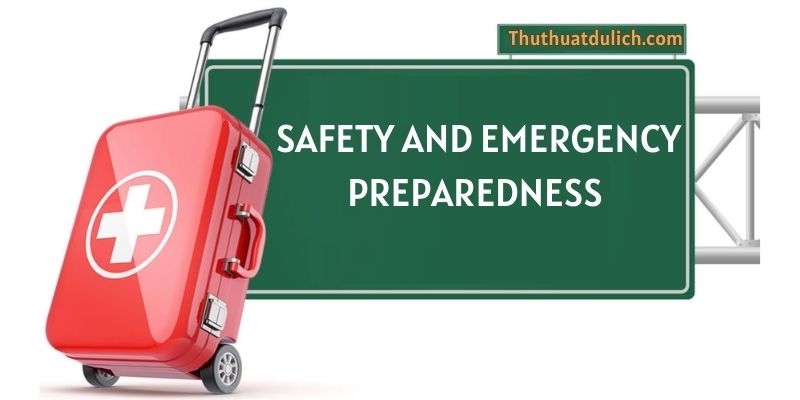The open road beckons, promising adventure, freedom, and unforgettable experiences. Planning a road trip is an art, and to master it, you need careful preparation and a sense of wanderlust. In this comprehensive guide, Thuthuatdulich‘ll navigate the journey together and discover how to plan a successful road trip, from start to finish.
How to Plan a Successful Road Trip
1. Defining Your Road Trip

The foundation of a successful road trip is clarity. Before you hit the road, define your adventure.
- Choosing Your Destination: The first step in road trip planning is selecting your destination. Whether it’s a coastal drive, a mountain escape, or a journey to historical sites, your destination is your road map.
- Setting a Budget: Determine your budget for the trip. Consider expenses like fuel, accommodations, local food, and activities. A well-defined budget keeps your adventure on track.
- Determining Trip Duration: Decide how long your road trip will last. This will influence your route and how much you can explore at each stop.
- Establishing Trip Goals and Objectives: What do you hope to achieve on this road trip? Whether it’s relaxation, adventure, or exploration, setting clear goals will shape your journey.
2. Route Planning
Route planning is where the adventure begins to take shape.
- Selecting the Ideal Route: Choosing your route is a pivotal decision. Opt for the fastest route or embrace scenic detours. Your choice should align with your goals.
- Identifying Key Stops and Attractions: Research and compile a list of must-see destinations and attractions along your route. These are the gems that will make your trip unforgettable.
- Considering Road Conditions and Weather: Stay informed about road conditions and weather forecasts, especially if your journey takes you through diverse terrains and climates.
- Creating a Flexible Itinerary: While planning is essential, flexibility is key. Leave room for spontaneous adventures and unexpected discoveries.
3. Vehicle Preparation
Your vehicle is your trusted companion on the road. Ensure it’s ready for the adventure.

- Ensuring Your Vehicle Is Roadworthy: Before you leave, schedule a thorough vehicle inspection. Address any maintenance or repair issues to minimize the risk of breakdowns.
- Packing Essentials and Safety Items: Pack a comprehensive kit that includes a first-aid kit, flashlight, jumper cables, and basic tools. Safety is paramount.
- Handling Maintenance and Repairs: Stay proactive with vehicle maintenance during the trip. Regularly check tire pressure, fluid levels, and brakes to prevent issues.
- Packing Efficiently: Pack your vehicle thoughtfully and efficiently. Maximize storage space and organize your belongings for easy access.
4. Accommodation
Choosing the right accommodation can significantly impact your road trip experience.
- Options for Lodging: Consider various lodging options like camping, hotels, motels, or vacation rentals. Your choice should align with your preferences and budget.
- Making Reservations in Advance: Especially during peak travel seasons, make accommodation reservations in advance to secure a comfortable place to rest each night.
- Budgeting for Accommodations: Allocate a portion of your budget for accommodations, striking a balance between comfort and cost.
- Tips for Finding Unique Places to Stay: Explore unique accommodations like treehouses, cabins, or boutique hotels to add a special touch to your journey.
5. Packing and Essentials
Packing smartly is an art that enhances your road trip experience.
- Clothing and Personal Items: Pack clothing suitable for the climate and activities you’ll engage in. Don’t forget essentials like toiletries and travel documents.
- Camping Gear (If Applicable): If camping is on your itinerary, ensure you have all necessary gear, including a tent, sleeping bags, cooking equipment, and camping essentials.
- Food and Cooking Supplies: Plan your meals and pack accordingly. A cooler, utensils, cookware, and non-perishable food items can help you prepare meals on the road.
- Entertainment and Navigation Tools: Keep yourself entertained during long stretches on the road with books, music, podcasts, or audiobooks. Ensure you have reliable navigation tools like GPS devices or maps.
6. Budgeting and Financing
Managing your finances is essential for a smooth journey.
- Creating a Road Trip Budget: Develop a detailed budget outlining anticipated expenses, including fuel, accommodation, food, activities, and contingencies.
- Saving and Financing Your Adventure: Start saving for your road trip well in advance. Consider additional financing options if needed.
- Managing Expenses on the Road: Track your expenses during the trip, sticking to your budget and looking for cost-effective alternatives when possible.
- Dealing with Unexpected Costs: Maintain a contingency fund to handle unforeseen expenses like vehicle repairs or medical emergencies.
7. Safety and Emergency Preparedness

Safety should always be a top priority.
- Staying Safe on the Road: Follow traffic rules, avoid distractions while driving, and exercise caution in unfamiliar areas.
- First Aid and Medical Considerations: Carry a comprehensive first-aid kit and necessary medications. Familiarize yourself with basic first-aid procedures.
- Handling Emergencies and Breakdowns: Be prepared for vehicle breakdowns or accidents. Know how to contact emergency services and have essential tools on hand.
- Communication and Navigation Tools: Equip yourself with reliable communication tools like a cellphone or satellite phone and navigation tools like GPS devices or maps.
8. Enjoying the Journey
The heart of your road trip experience lies in enjoying the journey itself.
- Mindful Road Trip Practices: Immerse yourself in the present moment. Savor the sights, sounds, and sensations of the journey.
- Capturing Memories and Experiences: Document your road trip through photography, journaling, or simply immersing yourself in the present.
- Embracing Spontaneity: Leave room for spontaneous detours and discoveries. Some of the best experiences happen when you deviate from your itinerary.
- Balancing Exploration and Relaxation: Strike a balance between exploration and relaxation. Take time to unwind and recharge.
9. Post-Trip Reflection
As your road trip comes to an end, take time to reflect and plan for future adventures.
- Reflecting on Your Road Trip Experience: Pause and reflect on the moments, lessons, and personal growth that stemmed from your journey.
- Documenting Your Journey: Treasure the memories you’ve created by organizing and preserving your photos, videos, or travel journal.
- Sharing Your Adventure with Others: Share your road trip experiences with friends, family, or fellow travelers. Allow others to glean inspiration from your journey.
- Planning Future Road Trips: Use your road trip as inspiration for future adventures. Plan the next chapter of your journey, and continue exploring the world with newfound wisdom.
Conclusion
The road to adventure is an exhilarating journey filled with exploration, discovery, and cherished memories. Mastering how to plan a successful road trip takes preparation, a sense of adventure, and a willingness to embrace the unexpected. As you embark on your next road trip, remember the lessons from this guide, and may your adventure be filled with wonder, discovery, and lasting memories.














